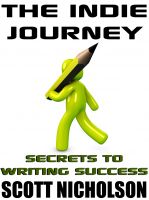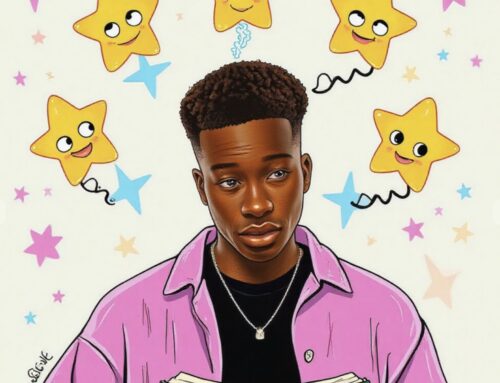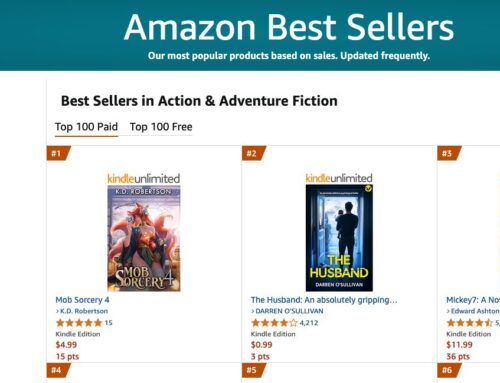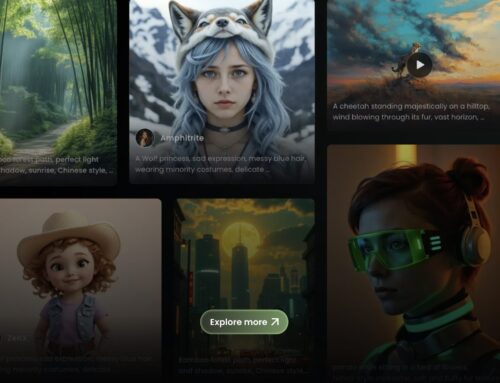 (Excerpt from The Indie Journey: Secrets to Writing Success by Scott Nicholson)
(Excerpt from The Indie Journey: Secrets to Writing Success by Scott Nicholson)
There’s a common belief among writers that the route through New York and then to America’s bookshelves is the best way to build an audience. Certainly, there are plenty of advantages to letting someone else worry about all that paperwork, especially when they are earning most of the money.
But I don’t think we can automatically assume that being on store shelves is going to grow your audience better than self-publishing. In fact, I believe the exact opposite. I believe anyone wrapped up under contract for the next two or three years is going to miss a historic opportunity.
You might very well be losing readers because major-press books will be used to benefit the corporate strategy, not the writer’s well-being, and you lose every competitive advantage besides the dubious marketing power of the publisher, who often expects writers to do most of the marketing anyway.
Getting paper books out there in a year will mean (a) you miss probably the peak year of e-book sales growth (that’s growth, not total sales) and (b) you totally miss the audience you will need in the years ahead because you will be priced out of the market and moved aside—and I think this is going to happen to a lot of corporate authors as new stars are being minted and readers exploit their incredible and newfound choice and purchasing power. Getting published by Big Six is increasingly meaning little to readers besides higher prices to avoid—in fact, most never even noticed publishers until the silly battle over $9.99 e-books.
Current print buyers are the late adopters of e-book technology, and if you cultivate that audience, I don’t think they will convert with the same enthusiasm and prolific degree that the first and second wave of adopters did. The tech pundits keep sliding the date of the tipping point ever closer—that day on which e-book sales will exceed paper sales. As with any dramatic change, it will likely accelerate in speed as it approaches, so it will arrive long before most even realize it, despite all the “industry observers” out there.
When the tipping point arrives and bookstores vanish with a vengeance, those contracted writers will be scrambling to re-establish themselves when they should be enjoying the fruits of a long career instead. In other words, this 10-million Kindle owner pool is the core audience for much of the immediate future. If you are lucky enough to board the next wave, it will be smaller and you will be fighting a million authors for eyeballs.
However, I am already looking at the fourth or fifth wave when publishers may come back into advantage—when books are sponsored and given away free, they will have advantage of scale to offer advertisers or will promote their own affiliate corporations in the books. I imagine the pay scale will really slide at that point, and only the driven or the insane will undertake the occupation of writing. Maybe the future is closer than we think.
One of the angles of the indie journey is that you may be invited to detour into a New York contract, especially if you have a particular series in a popular genre that looks like it can be mined for years to come. I can’t tell you what counts as a deal you should take—you will have your own needs, both emotional and financial, to consider.
But no matter how you slice it or how much money you will be paid, leaving the indie road for a corporate career basically means you went from owning your own business to being a temp worker on a short-term contract. If you think the money earned in New York will buy you more freedom down the road, it’s hard to argue with that. However, you should weigh the freedom you have now versus the value of theoretical freedom later.
That’s a roundabout way of asking “What do you want out of this?” Even if it’s only money, there’s no guarantee New York will get it for you faster or better or longer.
If it’s to work with veteran editors and the exciting world of agents and corporate gamesmanship, well, there’s an appeal to that, certainly. If you like the drama and want to move into the slightly superior (i.e., luckier) camp of “real writers,” maybe that’s an ego attraction that will satisfy some deep need for you.
The only recommendation I’d make is to educate yourself so you know the true cost of your decision. For example, if the publisher offers you $100,000, don’t tell yourself you just made $100,000, because you actually made $85,000 after the agent’s cut. If you give up your e-book rights for the entire life of copyright, don’t tell yourself you have protected your heirs from having to deal with your intellectual property. An e-book published in the major outlets will likely perpetuate without your heirs having to do anything but watch the money trickle into their bank account (and it will certainly slow to a trickle without someone tending it, although a publisher is as likely to neglect it as anyone).
The philosophy of this book is happiness. If New York makes you happy, by all means, sign your life away, and I will be the first to congratulate you. If you want to follow the indie journey, I’ll congratulate you every day, because I believe it will be the best path for most writers, and the road for you to meet the most readers.
You’re already building your book audience by being yourself.
—
Scott Nicholson is author of more than 30 books, some in the traditional small press. More writer stuff at www.hauntedcomputer.com
Get an Editorial Review | Get Amazon Sales & Reviews | Get Edited | Get Beta Readers | Enter the SPR Book Awards | Other Marketing Services






















Thank you, Scott, for your sensible and yet optimistic statement. I couldn’t agree more with this remark: “you should weigh the freedom you have now versus the value of theoretical freedom later.” No damned committee will ever write a book my name is on.